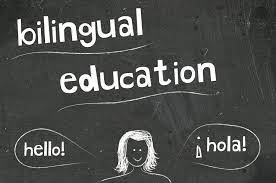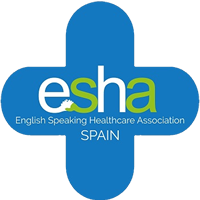
A Learning Superpower: The Personal Benefits of Bilingual Education
Gigi Luk from Harvard Graduate School of Education once said that bilingualism is an experience that shapes our brain for a lifetime. The perks of bilingual education are becoming more and more apparent, and experts are all nodding their heads in agreement that this learning approach can deeply impact our brains’ ability to learn and grow. If you’re a parent weighing the options for your child’s education, just think of bilingualism as a learning superpower they’ll carry with them for life.
Supercharged Thinking Skills
Researchers at Bangor University in the UK discovered that bilingual students have better recall, can pick out relevant information more effortlessly, and switch between tasks more quickly. These skills help enhance the executive function of the brain, allowing students to better focus on tasks without getting distracted, make wiser decisions, and become more critical thinkers.
Unleashing Creativity and Problem Solving
Students fluent in a second language tend to have stronger problem-solving skills, better pattern recognition, and a knack for finding more creative solutions.
Deepening Connection to Native Language
Introducing bilingualism at a young age helps students gain a more profound understanding of their native language. Research has shown that students feel their home language is more valued and respected when they attend a bilingual school.
Growing Empathy
Being able to read social cues and know when to apply a specific language can boost students’ empathic skills. Studies suggest that children develop a more robust ability to see different perspectives, which is a big help in building emotional intelligence.
Embracing Cultural Diversity
When students can understand stories, songs, and films in other languages, they develop a more significant appreciation for other people’s cultures. In our increasingly interconnected world, this openness to others is crucial for building a future where diverse groups can appreciate and work together constructively.
Soaring Academic Achievement
A study by George Mason University in the USA revealed that bilingual students tended to be more successful academically in a range of subjects, including language and mathematics. These students not only had higher test scores but also reported being happier, had fewer behavioral problems, and attended school more consistently.
A Healthy, Happy Brain
Research from Konyang University in Korea found that bilingual education could delay dementia symptoms by four to five years. Bilingualism requires more neural processing, which stimulates the brain and helps strengthen cognitive reserve. Brain imaging studies have shown actual changes in brain structure, and children who learn multiple languages also have stronger memories.
Opening Doors to a World of Opportunities
In today’s globalized workplace, the ability to learn and speak multiple languages is a priceless career asset. Students with language skills will not only be in high demand but also have a broader selection of universities and job markets to choose from. As workforces become more diverse, a global mindset becomes an indispensable trait for thriving in such an environment.
The gift of bilingual education is much more than just learning another language – it’s a lifelong learning superpower that can shape your child’s future in countless positive ways.
If you have any concerns about your child growing up in a bilingual enviroment you can find a list of educational psychologists in the ESHA Spain business directory
Leave a reply




Leave a reply